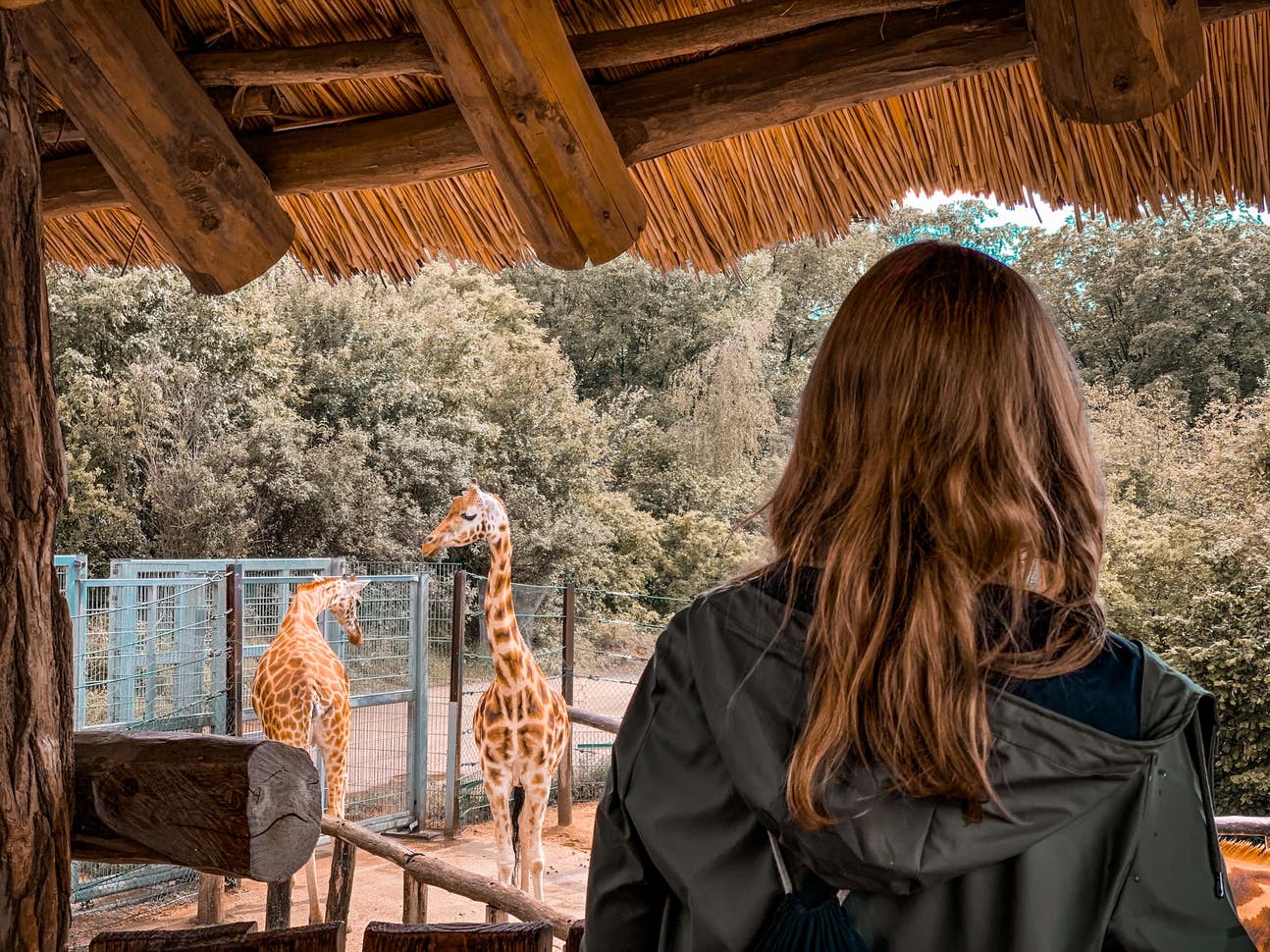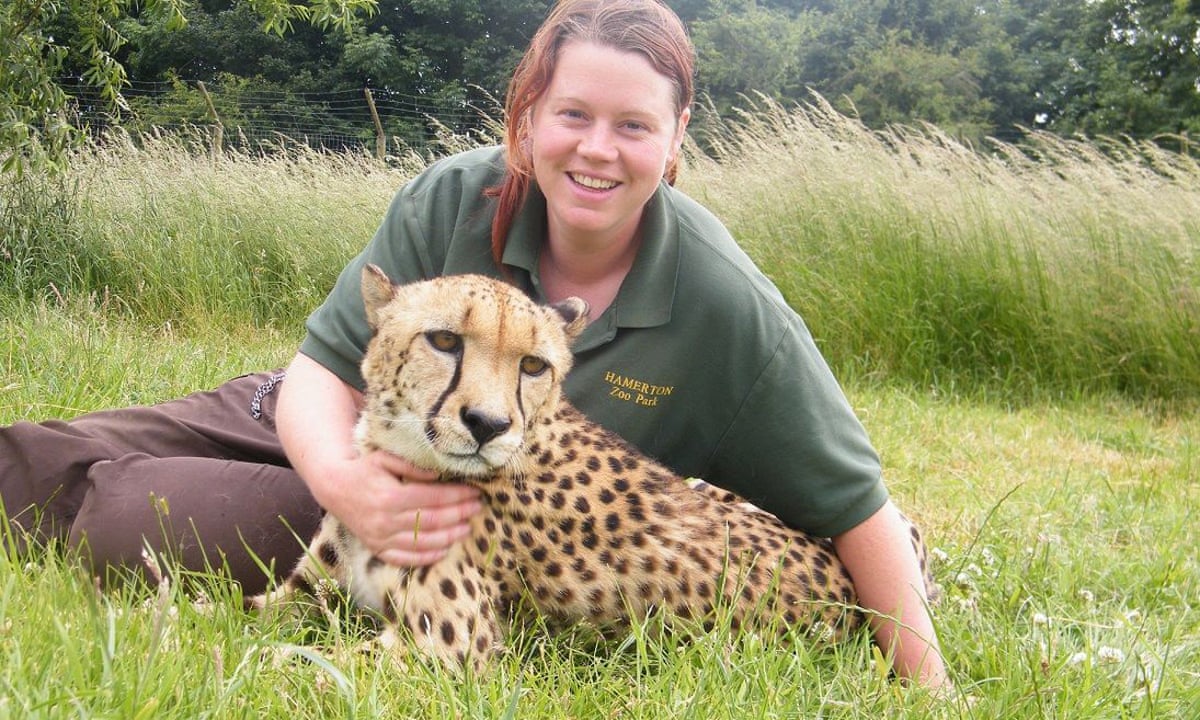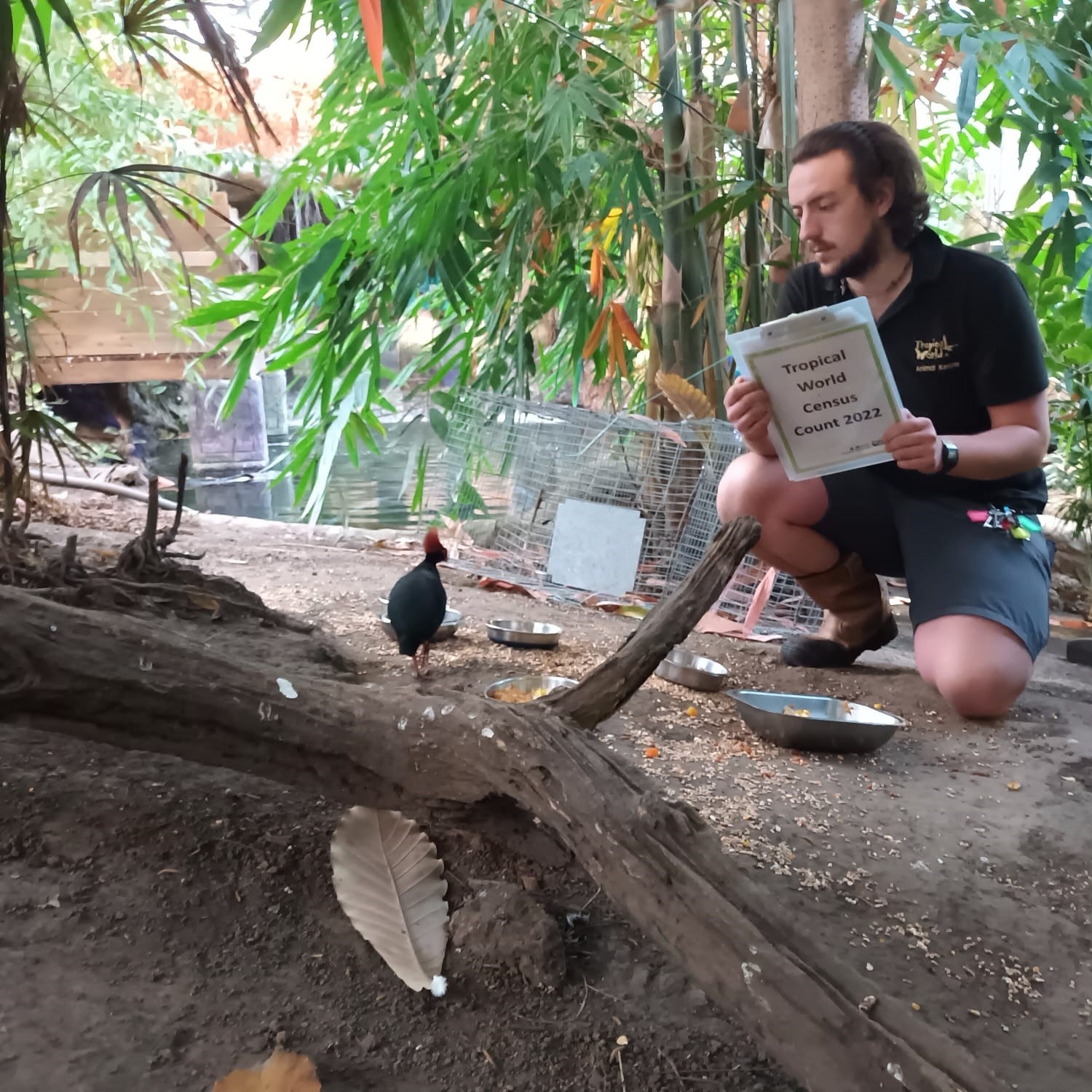How To Become A Zoo Keeper?
페이지 정보

본문
"The greatness of a country and its moral progress can be judged by the way its animals are treated." - Mahatma Gandhi
.jpg)
Do you enjoy animals and dream of operating in a zoo? Zoo keepers are type in protecting wildlife and caring for animals. At locations like the Zoological Society of London (ZSL), over 20,000 animals get the care they require from specialists.

To become a zoo keeper, you require effort, education, and a love for animals. This task is exciting, letting you work with many types and assist with important conservation work. If you're into wildlife or animal welfare, zookeeping might be ideal for you.
Beginning your zoo keeper profession means discovering what's needed. This guide will cover education, experience, and more. It's all you need to understand to start a satisfying zookeeping career.
Understanding the Role of a Zookeeper
Exploring what a zookeeper does reveals a function full of obstacles and rewards. They focus on animal welfare and conservation. Zookeepers work hard to keep animals healthy and pleased in their care.
Daily Responsibilities and Tasks
A zookeeper's day is filled with essential jobs:
- Preparing meals that meet each animal's dietary requirements
- Cleaning up enclosures to keep them clean and safe
- Watching over animal health and behaviour
- Providing medications and treatments as needed
- Creating activities to keep animals mentally sharp
Working Environment and Conditions
Zookeepers work outside in all kinds of weather condition. They handle both indoor and outdoor spaces. The job needs being fit and able to handle the demands of taking care of animals.
"Being a zookeeper is more than a task - it's an enthusiastic commitment to animal care and preservation."
Kinds of Animals and Specialisations
Zookeepers can specialise in lots of animal groups:
- Primates
- Big cats
- Marine mammals
- Reptiles
- Birds
Your role might include working with 2-5 different animal species. This requires a lot of knowledge and the ability to adjust.
Important Skills and Personal Qualities for Zoo Keeping
To be a leading zookeeper, you require more than just a love for animals. Your job will be difficult and need you to handle animals and individuals well. You'll also need to understand animal behaviour.
What zoos try to find in individuals includes:
- Exceptional persistence and emotional resilience
- Strong fitness and endurance
- Keen observation skills
- Ability to remain calm under pressure
- High level of empathy towards animals
Getting hands-on experience is essential to mastering this function. You'll require to reveal:
- Advanced understanding of animal care strategies
- Proficiency in animal handling and security procedures
- Reliable interaction with both animals and zookeeper human visitors
"A terrific zookeeper connects science, compassion, and conservation in every interaction with animals."
You ought to learn about animal nutrition, behaviour, and standard veterinarian care. Many zookeepers learn through training, volunteering, and continuous knowing.
Zookeeper work is not just a task. It's a huge commitment to teaching about wildlife and assisting preservation. Your passion and effort will make you stand apart in this satisfying profession.
How to Become a Zoo Keeper
Beginning a profession as a zookeeper needs cautious preparation and education. You should first understand the educational needs and training paths. These will turn your love for animals into a job.
Educational Requirements
To be a fantastic zookeeper, zookeeper you need a strong academic base. Many tasks try to find specific certifications:
- At least 5 GCSEs at grade 4 or above, including English, mathematics, and science
- A levels or higher education certifications
- A college degree in biology or animal science
- Level 3 Diploma in Animal Management
Required Certifications
Getting unique accreditations can actually assist you in your zookeeper profession. Crucial ones include:
- Diploma in Management of Zoo and Aquarium Animals (DMZAA)
- Zookeeping Level 3 Diploma (RQF)
- Animal dealing with certificates
- Emergency treatment qualifications
Training Programs and Apprenticeships
Getting hands-on experience is type in zookeeper training. Numerous places provide great possibilities:
- Unpaid apprenticeships at wildlife parks
- Internship programmes at widely known zoos
- Practical training at places like Colchester Zoo and Dartmoor Zoo
- Offering to gain real-world skills
Pro idea: Create a comprehensive portfolio to reveal your animal care abilities. It will help you in job applications.
Structure Relevant Experience in Animal Care
Gaining hands-on experience is crucial for those wishing to be zookeepers. The job is really competitive. So, it's important to begin building a strong base in animal care.
Your journey begins with discovering ways to work with animals. This is a strategic action.
"Experience is the best instructor in animal care" - Wildlife Conservation Experts
Here are effective methods to get experience working with animals:
- Volunteer at regional animal shelters to develop standard animal managing abilities
- Look for internships at wildlife rehab centres
- Explore part-time positions at veterinary centers
- Contact your local zoo for possible volunteer chances
Volunteering is a great method to find out about animal behaviour and care. Many zoos and animal shelters are searching for individuals who wish to learn. These places use fantastic opportunities to get hands-on experience and reveal your devotion to animal welfare.
Here are some tips to take advantage of your experience:
- Keep a record of your abilities and interactions
- Connect with experts in animal care
- Request references and letters of recommendation
- Stay persistent and show your real passion
Remember, practical experience makes you stick out in the zookeeping world. Each time you deal with animals, you discover more. This increases your chances of getting a job in animal care.
Career Pathways and Professional Development
Starting a profession as a zookeeper is exciting. It provides numerous chances to grow and specialise. Your journey starts with understanding the various paths in this field.
Entry-Level Positions
Entry-level tasks in zookeeping are a fantastic start. They give you hands-on experience. Zoos look for candidates with:
- Level 2 Diploma in Animal Care (minimum credentials)
- GCSEs in English and a scientific topic
- Volunteer experience at animal shelters or farms
Profession Progression Opportunities
As you gain experience, your profession can grow. You can go up to:
- Junior Keeper
- Senior Keeper
- Group Leader
- Expert Roles
"Continuous learning and practical experience are essential to advancing in your zookeeping career."
Specialised Roles
You can also choose unique locations like:
- Conservation breeding programmes
- Animal training
- Wildlife research study
- Educational outreach
About 25% of zookeepers get advanced degrees in zoology or animal conservation. Getting Level 4 certifications can enhance your chances for zookeeper senior roles and research.
Working Hours and Physical Demands
Becoming a zookeeper implies you'll work more than simply routine hours. You'll deal with tough physical obstacles and require to be versatile, including weekends and holidays. Zoos are open every day, so you'll often work when others unwind.
"Zoo keeping is not a common 9-to-5 task-- it's a lifestyle of devoted animal care and dedication."
This task is physically demanding. You'll work outside in any weather condition, raising heavy items over 50 pounds. Your jobs might include:
- Early early morning feeding schedules
- Cleaning up animal enclosures
- Preparing specialised diet plans
- Carrying out health checks
- Maintaining complicated habitats
Shifts can begin as early as 5 AM and go late into the night. You'll be on your feet most of the time, moving between animal zones. Weekends and holidays are part of the task, requiring great deals of stamina and dedication.
Despite the obstacles, this job has terrific benefits. You'll grow strong, both physically and emotionally. You'll also make remarkable connections with amazing animals.
Health And Wellness Considerations
Being a zookeeper comes with its own set of obstacles. It's crucial to know how to keep both animals and personnel safe. This implies following rigorous health and safety rules.
Zookeepers deal with an unique environment where security is crucial. Research studies reveal that health and safety are now as important as the zoo's primary work.
Danger Management Strategies
There are a number of ways to handle threats in zoos:
- Daily checks of animal enclosures for zookeeper dangers
- Counting animals at the start and end of shifts
- Seeing how visitors act near animals
- Being ready for emergencies
Animal Handling Safety Protocols
Understanding which animals are most hazardous is vital. Huge animals like rhinos can be really risky. There have actually been cases where zookeepers got seriously injured.
Safety isn't just about wearing equipment - it's about understanding animal behaviour and staying alert.
Personal Protective Equipment
Zookeepers require to wear the ideal equipment, consisting of:
- Special gloves for dealing with animals
- Strong shoes for grip and security
- Clothes that protects against germs
Getting vaccinated against diseases like liver disease B and rabies is also essential. It helps keep zookeepers healthy in their tough job.
Income Expectations and Job Market
Thinking of a career in zoo keeping? It's crucial to know about incomes and the job market. The field is growing, with more opportunities in the UK.
Let's look at what zoo keepers can make at various phases:
- Entry-level zookeepers start at about ₤ 14,000 a year
- Qualified ones make between ₤ 16,000 and ₤ 22,000
- Senior zookeepers can make up to ₤ 30,000 or more
The job outlook for zoo keepers is great. The sector is expected to grow by 5% in the UK by 2029. This means around 3,910 new jobs will be readily available.
"The Association of Zoos and Aquariums supports professional development for zoo keepers," a report states.
Wages differ based upon several things:
- Experience level
- Specialisation
- Where you work
- The zoo's size and type
While the pay may not be high, the delight of working with animals is invaluable. The average income is around ₤ 17,000. However, total incomes can be in between ₤ 13,000 and ₤ 27,000 a year.
Conclusion
Beginning a career in animal care is an interesting journey. It requires dedication, zookeeper passion, and a love for knowing. With over 350 zoos and wildlife places in the UK, there are many job opportunities. You'll get to deal with remarkable animals and help protect wildlife.
To be a zoo keeper, zookeeper you need more than just love for animals. You must have a mutual understanding of biology, have the ability to communicate well, and always want to learn more. You'll gain hands-on experience, learn more about animal welfare, and develop a deep respect for nature. About 3,000 people in the UK have discovered satisfying careers in this field.

Your success in zoo keeping comes from mixing science with a love for animals. Whether you're interested in mammals, birds, or marine life, this task lets you help with conservation. Every day will bring brand-new difficulties and discovering chances that will enhance your skills and knowledge.
If you enjoy animals and wish to help protect wildlife, zoo keeping might be for you. Handle the challenge, remain curious, and turn your enthusiasm for animals into a satisfying profession.

- 이전글تصاميم مغاسل رخام للمجالس في الرياض,0506955498 25.02.06
- 다음글Look Ma, You may Really Construct a Bussiness With Https://casino-consulting.org/ 25.02.06
댓글목록
등록된 댓글이 없습니다.
